Introduction
In a dynamic work environment such as the one all of us are living in right now, managing remote workers is more important than ever. As more projects are executed by dispersed teams, leaders must adapt and hone their approach to management. These are the five top books from which everyone can cleverly gather how we should manage remote workers.

What is the Benefit of Managing Remote Workers?
The benefits of managing remote workers effectively include:
- Being More Flexible: Remote work, increases flexibility in employees giving them the opportunity to manage their professional and personal obligations efficiently. This flexibility can reduce turnover, improve job satisfaction.
- Global talent access: Remote teams enable organizations to source the best candidates irrespective of their locations.
- Reduced Cost Savings: Remote work can save thousands on costs like rent, utilities and office supplies.
- Productivity is high: Especially when minimizing office distractions and creating your personal workspace, Many remote workers host improved productivity levels.
How This Can Help Us and How Books Can Assist
Managing remote workers in a better way can lead to transformation, on both the individual and organization levels:
- Team Dynamics: Implement the skills from books, will help leaders to develop more natural and cohesive remote teams enhancing overall team dynamics.
- Better Employee Well-being: Books like “The Remote Work Revolution” address common issues — how to manage isolation, the threat of burnout and more— related remotely that creates happier employees.
- In terms of more agile organizations, having effective remote management practices allows you to be able to pivot and stay in operation during times when external factors might affect business as usual.
Books are more of the benefits in this sense.—
- Knowledge & Strategies: Gives proven strategies, and frameworks for managing remote teams helping leaders navigate the complexities of remote work.
- Action item books – Made for practicality, these books offers tactics and examples that you can start using today to lead your teams remotely better.
There is continuous learning: When leaders read about what the trends are around remote work and some of the best practices into how to manage that workforce, then they stay abreast so when a new challenge arises because flexibility in scheduling has now become an issue or health benefits have popped up within this evolving definition of flexible workspace.

1. “Remote: Office Not Required” by Jason Fried and David Heinemeier Hansson | Managing Remote Workers
Remote: Office Not Required by Jason Fried and David Heinemeier Hansson, is a revolutionary book at championing the positives of remote working and detailing how to manage it. They are the founders of Basecamp and give down-to-earth advice from their own real-world experience with a fully remote team.
- Why It’s Important: This book lays the foundation for finding out all about how remote work abilities could make a difference and exploring ways to execute them successfully. The authors clear up common myths and make practical suggestions for overcoming difficulties when working from home.
- Key Takeaways:
- This way team members can work across time zones without waiting for someone else’s reply.
- Hiring and Trust — Highlights hiring self-motivated individuals that are willing to take the ball, as remote work is much more independent than being in an office.
Quote: “The office is a good interruption factory, but you don’t have to work there.”
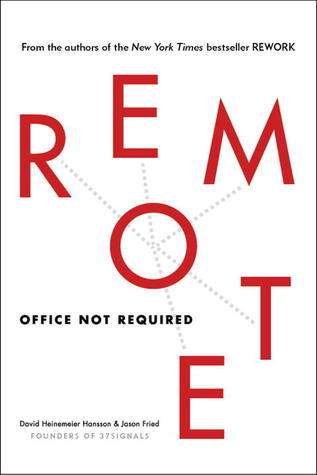
2. “The Long-Distance Leader: Rules for Remarkable Remote Leadership” by Kevin Eikenberry and Wayne Turmel | Managing Remote Workers
The Long-Distance Leader by Kevin Eikenberry and Wayne Turmel provides a set of strategies on how to manage remote teams. It’s a mix of your standard principles and some remote-specific advice to create sort of an operating manual for leading from afar.
- Why You Need to Read: The book is for any leader who wants a boost their remote leadership capabilities. The book offers practical, implementable rules and tips for people to follow, making it a great way manage remote teams.
- Key Takeaways:
- Trust Building: Tips on how to build & maintain trust with your team members working from different locations through communication and transparency.
- Virtual Meetings: Rules for holding great virtual meetings that keep your teams engaged and informed.
Quote: “Leadership isn’t about where you are; it’s about what you do.”
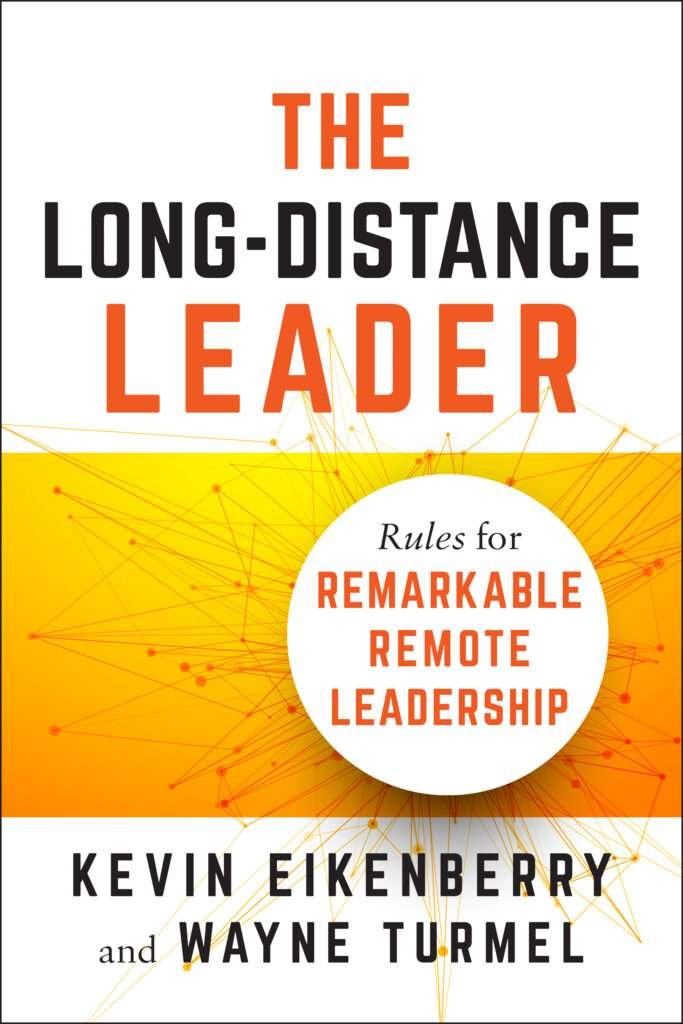
3. “Virtual Leadership: Practical Strategies for Getting the Best Out of Virtual Work and Virtual Teams” by Penny Pullan | Managing Remote Workers
Virtual Leadership by Penny Pullan provides approaches to lead virtual teams with communication, engagement and trust. It is a full manual on how to deal with the intricacies of leading remote teams.
- Why It Matters: This book is an exegetical follow up for leaders looking to manage cross-geographical and cultural teams. It offers strategies for solving common problems related to virtual leadership.
- Key Takeaways:
- Cultural Awareness: Highlights to be aware of and respect the difference in culture among a global team.
- There are numerous engagement strategies we share, like having virtual team builders and providing constant feedback to make sure remote workers feel included else they might become disengaged.
Quote: “In the virtual world, the skills of a leader are amplified, because your actions are magnified by the distance.”
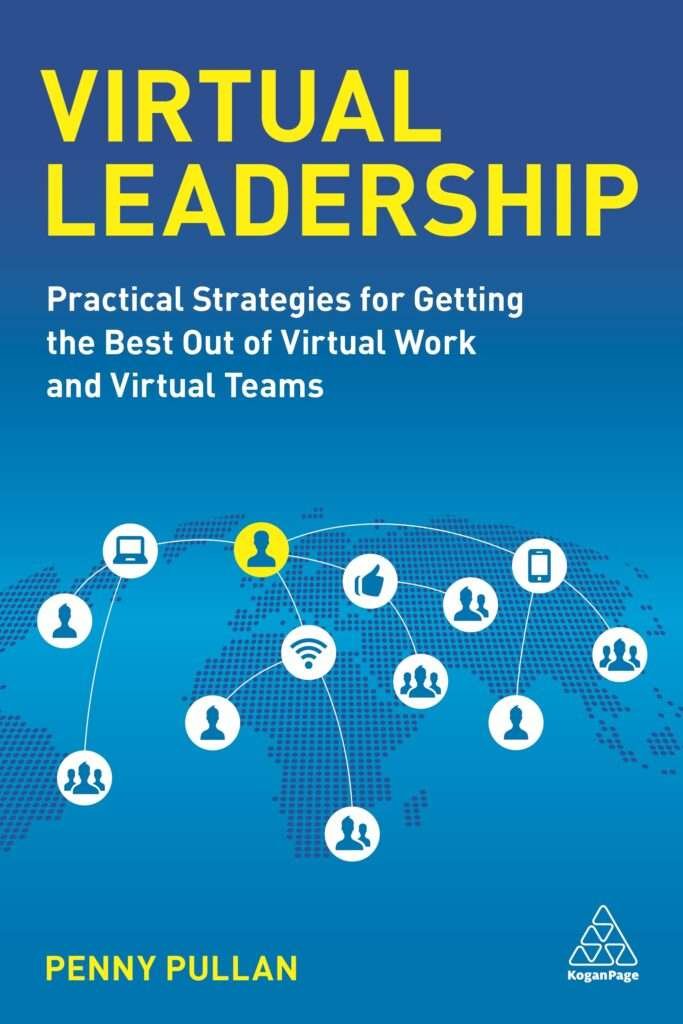
4. “Leading from Anywhere: The Essential Guide to Managing Remote Teams” by David Burkus | Managing Remote Workers
Leading from Anywhere by David Burkus details the contemporary context of working remotely and provides practical approaches to lead remote teams with impact. It features both the difficulties and advantages of remote work setting which give an overview on how to establish a constructive as well as inspirational space for working from home.
- Also Highly Recommended: This book by Burkus — a trending author and speaker who backs everything he shares with evidence-based research from today’s leading thinkers— is relevant, fresh but also highly practical for the remote leader of today.
- Key Takeaways:
- Building Trust and Autonomy: This section emphasizes trust for remote employees, leading to increased autonomy which in turn creates a results-oriented culture.
- Unity: Tips for ensuring all team members are both included and valued, no matter where in the world they reside.
Quote: “Remote work isn’t just a way to work; it’s a way to live.”
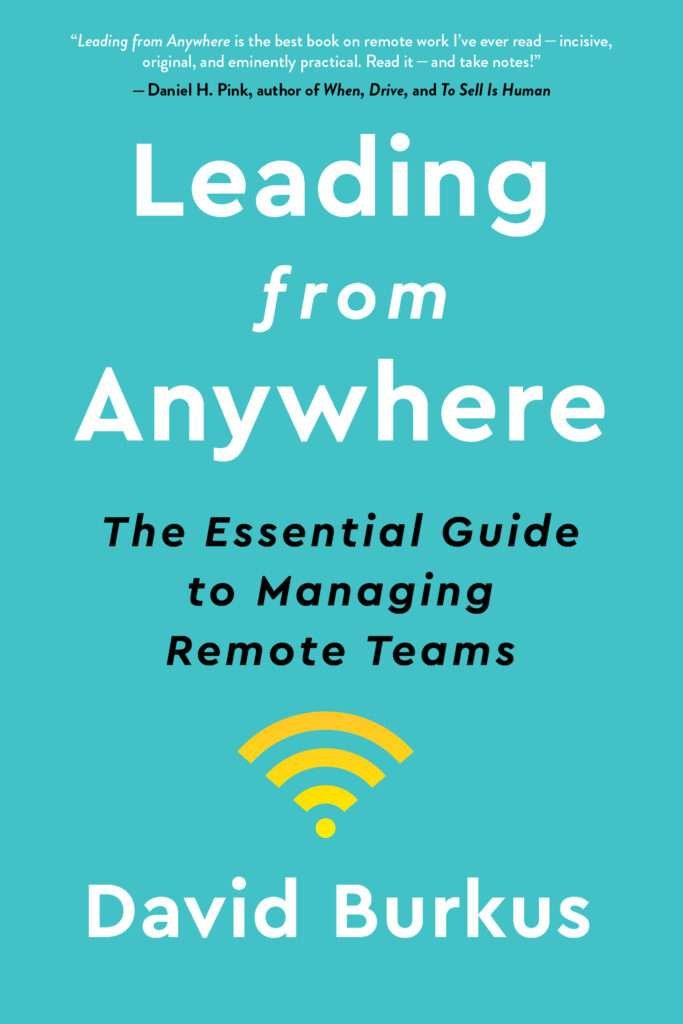
5. “The Remote Work Revolution: Succeeding from Anywhere” by Tsedal Neeley | Managing Remote Workers
Remote Work Revolution, The Book Summary By Tsedal Neeley (Summarised… My book is a roadmap for successfully working from home, combining both the human and organizational side to remote work.
- Why It Matters: This book provides context for remote work on a larger scale and helpful resources to create an inclusive end successful WFH environment.
- Key Takeaways:
- Emotional Impact: Covers the emotional trauma of remote work or being too much in our own thoughts, how and why most people are burnt out and what we can do to figure things.
- Building Connection: Provides realistic strategies to keep social connections alive or create community among virtual team members
Quote: “The future of work is about freedom – the freedom to choose where and how we work.”
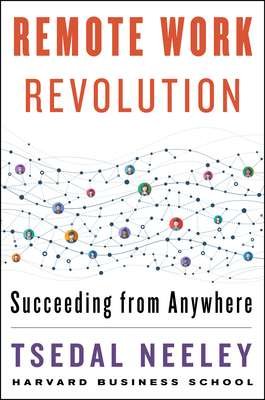
Conclusion
By investing in time to read these top books on how you can expertly manage people remotely, they will prove an invaluable resource for the thinking executive. Read on for an actionable guide to nail the basics of remote team collaboration and culture building — from mastering all elements of virtual communication, wagging productivity while working remotely to tips & tricks that can turn your distributed employees into a high-performance unit.
FAQs
1. What are the main challenges of managing remote workers?
Answer: Managing remote workers comes with several unique challenges:
- Communication Barriers: Without face-to-face interactions, it can be difficult to ensure clear and effective communication. Misunderstandings and information gaps can occur more frequently.
- Maintaining Engagement: Remote workers may feel isolated or disconnected from the team, leading to lower engagement levels.
- Performance Monitoring: Tracking productivity and performance can be more challenging when team members are not physically present.
- Cultural Differences: Managing a global team can involve navigating diverse cultural norms and practices, which may impact team dynamics and collaboration.
Books like “The Long-Distance Leader” and “Virtual Leadership” provide strategies to overcome these challenges and effectively manage remote teams.
2. How can books help in improving remote team management skills?
Answer: Books offer several benefits for improving remote team management skills:
- Expert Insights: Books written by experts provide valuable insights into remote work practices, offering strategies that have been tested and proven effective.
- Practical Tips: Many books include practical tips and real-world examples that can be applied directly to your remote management practices.
- Skill Development: Books can help develop essential skills such as communication, leadership, and performance management, tailored specifically for remote teams.
- Frameworks and Models: They often present frameworks and models for managing remote teams, which can be adapted to fit your organization’s needs.
Books like “Remote: Office Not Required” and “Leading from Anywhere” offer actionable advice and frameworks that can enhance your remote management skills.
3. What are some key strategies for building trust with remote team members?
Answer: Building trust with remote team members is crucial for successful remote management. Key strategies include:
- Regular Communication: Maintain consistent and transparent communication through regular check-ins and updates. Tools like Slack or Zoom can facilitate this.
- Setting Clear Expectations: Clearly define roles, responsibilities, and goals to ensure everyone knows what is expected of them.
- Showing Appreciation: Recognize and reward achievements and efforts to build morale and demonstrate that you value your team’s contributions.
- Encouraging Feedback: Create an open environment where team members feel comfortable sharing feedback and concerns.
Books such as “The Remote Work Revolution” and “The Long-Distance Leader” provide insights into building and maintaining trust in remote teams.
4. How can managing remote workers lead to increased productivity?
Answer: Managing remote workers effectively can lead to increased productivity in several ways:
- Flexible Work Environment: Remote work offers flexibility in work hours and locations, which can help employees work when they are most productive.
- Reduced Distractions: Many remote workers experience fewer office distractions, leading to higher focus and efficiency.
- Autonomy: Providing employees with more control over their work environment and schedule can boost motivation and drive.
- Better Work-Life Balance: Remote work can improve work-life balance, leading to higher job satisfaction and reduced burnout.
Books like “Leading from Anywhere” and “Virtual Leadership” discuss strategies for creating a productive remote work environment.
5. What should I look for in a book about managing remote teams?
Answer: When choosing a book about managing remote teams, consider the following factors:
- Author Expertise: Look for books written by authors with experience in remote work and leadership, as their insights will be more practical and relevant.
- Practical Advice: Choose books that provide actionable strategies and real-world examples that you can apply to your remote management practices.
- Relevance to Current Trends: Ensure the book addresses current trends and challenges in remote work, including technology, communication, and team dynamics.
- Comprehensive Coverage: Select books that cover a wide range of topics relevant to remote management, such as communication, trust-building, and performance monitoring.
Books like “Remote: Office Not Required”, “The Long-Distance Leader”, and “Virtual Leadership” meet these criteria and offer valuable insights into managing remote teams.
Check Out The Sources
Check Out More



